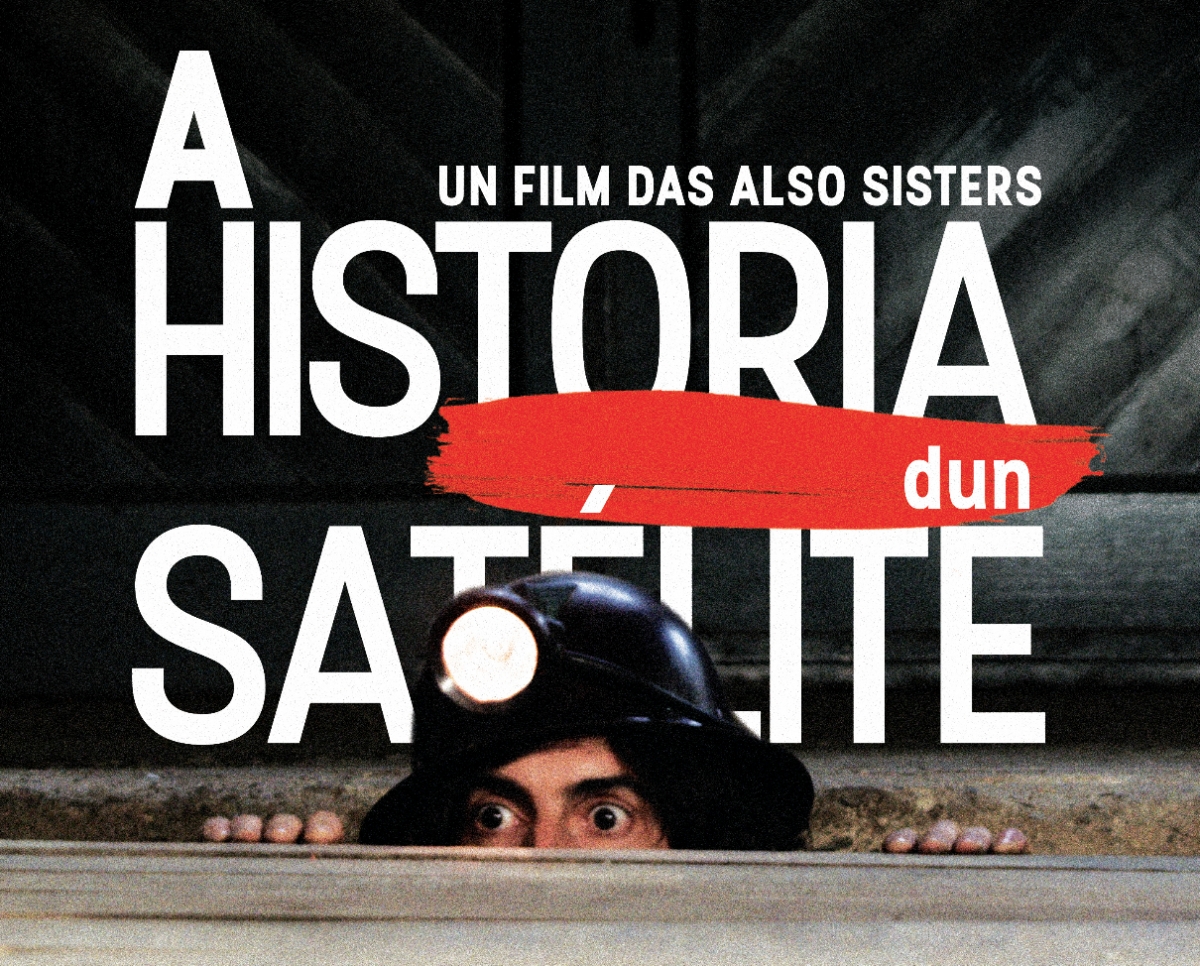Department of Film & Media Arts Visiting Assistant Professors Miriam and Sonia Albert Sobrino’s feature film The Story of a Satellite, will make its European premier at the 25th Raindance Festival, which is largest independent film festival in the UK, on September 23rd. In addition, the films has been nominated for a Discovery Award for debut features, putting the Also Sisters in the running to win a $20,000 post-production deal with Toronto's based company Urban Post Production.
Satellite was shot in 2013, while the Also Sisters were Film Production graduate students at the University of Utah’s Film & Media Arts Department. A rough cut of the film was screened during their thesis defense, along with 5 additional short films. ”To be honest, after graduating, we didn't have a lot of time to actually work on the film. Other time sensitive projects got in the way of things and we had to prioritize other responsibilities. In addition to that, we didn't have a crew, so all the post-production work had to be done by us in its entirety. We were very fast in spite of the challenges, and we are happy that, budgetary restrictions aside, we didn't compromise the overall quality of the final film. It might seem as if it took a lot of time to post-produce it, but in reality, we probably spent just a full year working on it. It feels so good to have finally "abandoned" it and see how it's going to so many places where people with various backgrounds and interests can enjoy it.”
The Story of a Satellite is a dark comedy focusing on Raphael the undertaker, who almost 20 years after losing his father to a freak satellite-related accident, realizes that his whole life has been orbiting in the wrong direction. With the help of his own "Sancho Panza", Melito, the story follows Rafael on a transformational journey that he could never have anticipated. The film is humorous in essence, and takes a very relatable, emotional subject and makes it easier to "digest" through comedy. Satellite strongly reflects The Also Sisters Galician roots, in style, humor and language.
“The film is in "Galego" with short sections in Spanish and English. In terms of its Galician influence, the film is, in essence, a Galician film. It belongs to the so called "Novo Cinema Galego"; a new wave of Galician cinema identified by its strong roots in the Galician culture. Our film specifically draws and elevates the well-known deadpan Galician humor known as the "retranca galega": a corrosive, macabre, dark and ironic humor. There's lots of pathos, which to some audiences might come as a surprise because the film moves quickly from a very funny scene to a very dramatic one in which we obviously expect them to react with a smile and a tear. Again, there's a lot of that "retranca galega." If we were to draw a comparison, in terms of style, we could say that our film mixes Buñuel's surrealism, Jiří Menzel's humor in Closely Watched Trains (1966) and José Luis Berlanga's use of satire in Welcome Mr. Marshall. “
The Raindance website describes the film as “a series of incredible, stylized shots, reminiscent of Wes Anderson’s best. Each frame tells its own story, and the greyish hues create a sense of haunting nostalgia. Refreshing, funny, but at times shockingly sad, this is a black comedy that reminds us “not to fixate on the sky or miss the life around us.”
Although Satellite is universally relatable, the film specifically revolves around some of the twin filmmakers’ recurrent concerns in life, particularly the fear of loss.
“Being so far away from Spain, from our parents, we worry a lot about their well-being and, honestly, we can't understand our lives without them. The fear of losing them can be very suffocating at times. So, that's clearly present in the film. Additionally, we have spent most of our lives prioritizing work, and have dedicated very little time for personal enjoyment and recreation, or even just to hang out with family and friends. It is definitely a choice that we are happy that we've made. We love what we've achieved so far and we have no reasons to complain. However, we do believe that one of the many problems of our generation is that we worry too much about everything, and we focus most of our time on our careers, forgetting what's really important. The tagline of our film, which is also a quote from it, says: "Because he was so fixated looking up to the sky, he missed the life around him". Rafael spends his life looking up at the sky concerned that a satellite might fall and crush him; because of that, he doesn't actually live his life. By the time he realizes what he's missed, it is too late, his life has already flashed in front of his eyes and he can't get the time back.
So, we guess that in a very cheesy way, we would hope that people become aware of their own mortality and how important is to savor every second before it's too late. Also, use your phone less and interact with the people around you.”
Satellite premiered stateside in August of 2017 and was selected to open the Defy Film Festival in Nashville, Tn. The Also Sisters have hopes to bring the film to Utah as well. “We are hoping to have a Utah Premiere next spring and, in any case, we will make sure to have a screening that is open to the public in Salt Lake City, so all of our students can come see it and enjoy "butchering" it afterwards in a fun and honest Q&A. It'd be so great to see them discuss it using the analytical tools that we teach them in class (as painful as that can be)”
The Film & Media Arts Department, The College of Fine Arts and the University of Utah wishes the Also Sisters the best of luck as Satellite competes at in London this week!



